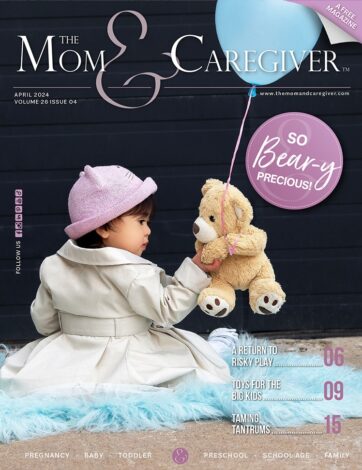Encouraging Your Infant To Have A Voice
As parents and guardians, we are often encouraged to listen to the voice of our infant, but wonder what does this mean? Muddling this question are claims that adults sometimes do not listen to and hear the voice of the young child (Lansdown, 2010) and that the voices of infants are often silenced by the needs of older children (World Association for Infant Mental Health, 2016). Sarah Te One (2010), an advocate in this area of study, suggests that rights of the young child include having their needs met by adults who are responsible for them. She proposes that these responsibilities include respecting the child’s rights to express their views. When respect is demonstrated, it creates opportunities for the young child to be involved in decisions that affect them. It also fosters protective factors, healthy development, later decision-making, accountability, and respect for others (UNICEF, 2010).
So, the question of how we can mobilize the voice of the infant, who does not yet have the formal language required to express themselves? In considering this, Lansdown (2011) reminds us that infants have the capacity to participate in decisions informing their well-being, and this unfolds when adults are willing to listen. As we attentively listen by reading and responding to cues which include eye contact and gaze, facial expressions, vocalizations, nonverbal gestures, diverse types of crying, and touch, we act as a catalyst for the voice of our youngest to be heard. We can also invite infants to express their voice by asking questions, and/or reading and offering a rationale for the infants’ cues.
Some examples include:
“Are you done, or would you like more? You’re looking away tells me you are all done.”
“You are sad. You don’t like it when your sister takes away your toy”.
“I wonder if you like peas? You’re opening your mouth for more. You like peas.”
Although this seems basic to the way that many of us engage with infants, it is critical in promoting the message that infants have not only the right to be heard but also have multiple means of bringing voice to their needs and perspectives.
References
Lansdown, G. (2011). Every child’s right to be heard. London, UK: UNICEF.
Te One, S. (2010). Advocating for infants’ rights in early childhood education. Early Childhood Folio, 14(1), 13-17.
World Association for Infant Mental Health. (2016). WAIMH position paper on the rights of infants. Retrieved from www.waimh.org website: http: http://www.waimh.org/i4a/pages /index.cfm?pageID=3361
Tina Bonnett is a professor in an Honours Bachelor Early Childhood Leadership degree at a local community college.
Tina Bonnett is a professor in an Honours Bachelor Early Childhood Leadership degree at a community college. She is passionate about exploring temperament with future leaders in the early years sector.














